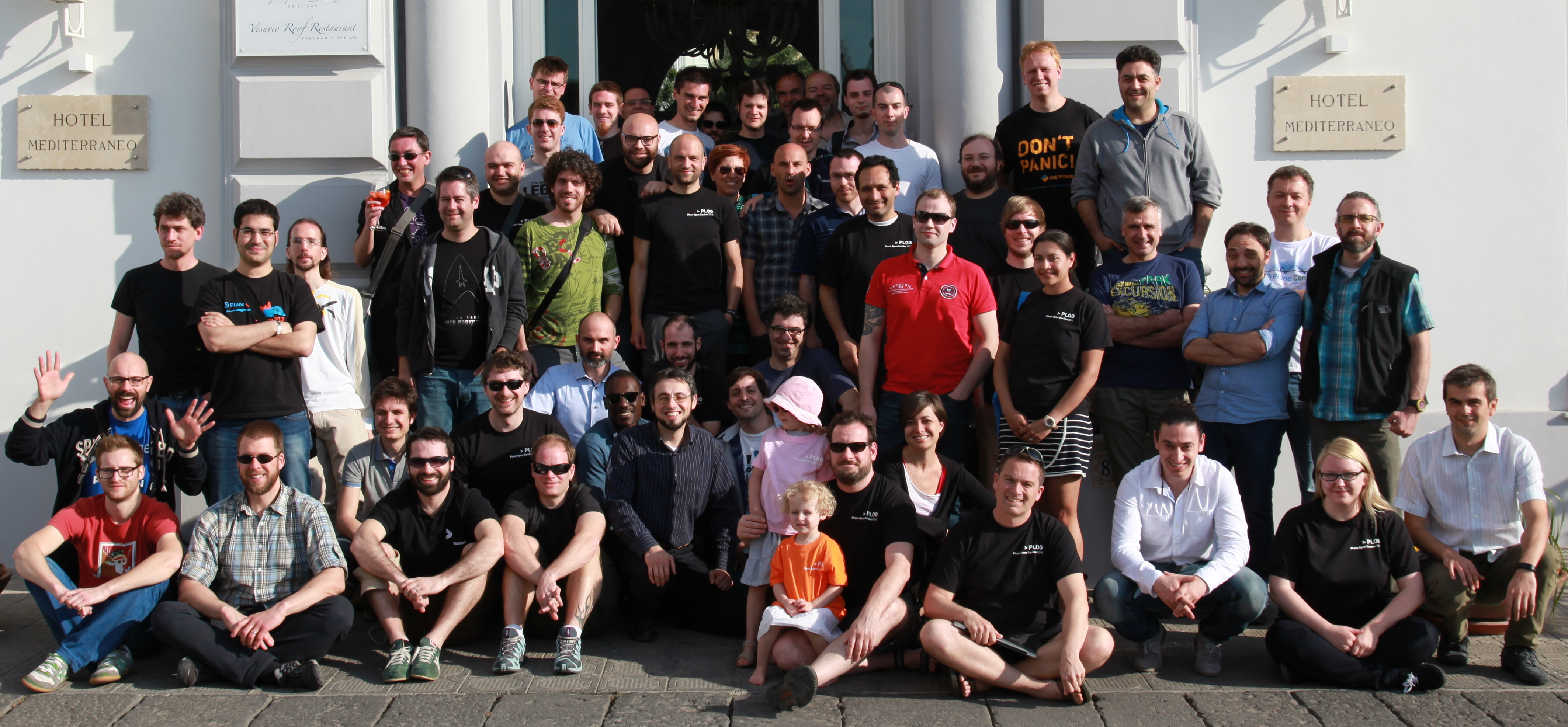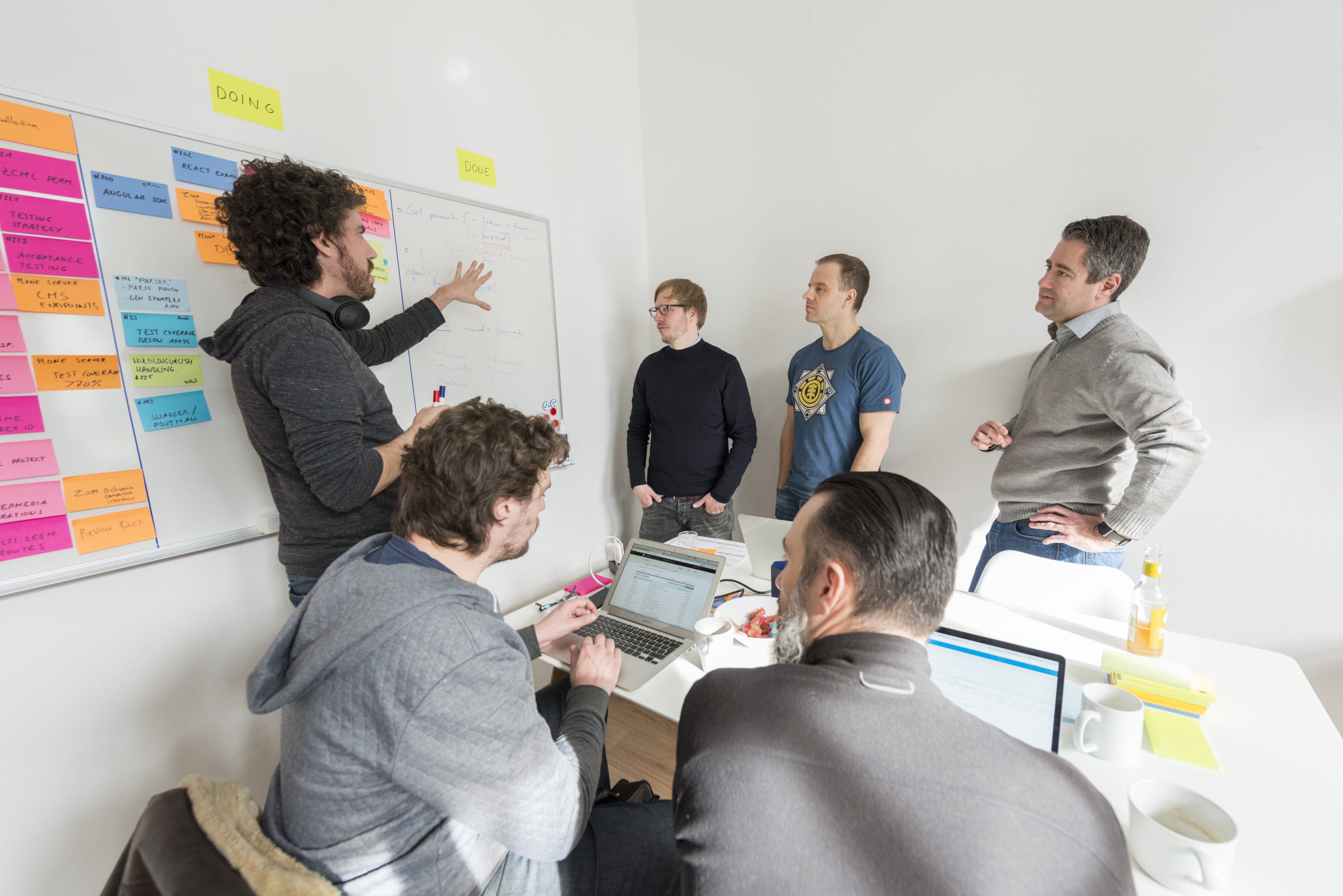plone.restapi 1.0.0 released - A Story of Successful Open Source Collaboration
plone.restapi is a RESTful hypermedia API for the Plone Open Source Content Management System. It exposes the unique and powerful features of Plone, including the core content management features as well as dynamic content type creation, workflows, permissions, versioning and more.
plone.restapi builds a bridge between a stable and mature Open Source CMS that has been around for more than 15 years and modern state-of-the-art JavaScript-based solutions like React, Angular, Vue and others.
A Little Bit of History
PLOG 2014
The development of plone.restapi started in beautiful Sorrento, Italy at the Plone Open Garden in 2014 after I gave a talk about building an AngularJS application on top of Plone.
A long discussion with Simone Deponti under the Italian sun, about REST API design principles and hypermedia (of course), led to the first commit and the development of a first proof-of-concept implementation.
plone.rest and PLOG 2015
One year later we gathered in Sorrento again. Laurence Rowe, Ramon Navarro Bosch and I spent our days and nights discussing the details of the REST API design and drafted multiple endpoints.
One of the main obstacles to building a RESTful API on top of Plone was the missing ZPublisher support for HTTP verbs such as PATCH, PUT or DELETE. In 2015, I sat together with Ramon Navarro Bosch in Sorrento (again) and we (he really did all the heavy lifting) started to build plone.rest, a small package that adds support for HTTP verbs to Plone.
Archetypes and Serializers
We never planned to support Archetypes in plone.restapi. Though, when Thomas Buchberger and Lukas Graf came along and offered to build it, we did not object (of course not, this is Open Source). Their company 4teamwork planned to build a REST api on top of Plone for their OneGov GEVER platform.
Instead of building something on their own, they decided to join forces and share their work and code with the community. Along the way, they heavily refactored the code, added tons of adapters for loose coupling and the ability to customize the JSON serialization.
After this, we were confident to do a first alpha release of plone.restapi on June 14th 2016.
Beethoven Sprint
In March 2017, fourteen Plone developers from eight different countries gathered in Bonn, at the kitconcept office, for the Beethoven Sprint to work on plone.restapi and related topics. In addition to sorting out the last remaining design decision, many exciting new projects were started and announced.
Angular
At the Beethoven sprint, Eric Brehault started to work on an Angular SDK for plone.restapi. A release followed soon and Eric gave a very successful and crowded training at the Plone Conference 2017 in Barcelona.
Today, Angular SDK is a mature package for Angular 2 that makes it really easy for front-end developers to interact with Plone and a fantastic starting point for newbies.
Eric and I mentored Noel Varghese during last year’s Google Summer of Code to build a Progressive Web App for Plone in Angular 2. Noel gave a nice presentation of his successful project at the Plone Conference in Barcelona.
React
Rob Gietema and Roel Bruggink started to build a React-based front-end on top of plone.restapi at the Beethoven sprint in Bonn. Later that year, they went to Toulouse in September 2017 to implement the Pastanaga CSS together with the Plone Angular team.
In November they visited Bonn again for the Pastanaga Sprint where we started to implement the new Pastanaga UI for plone-react.
At kitconcept, we started to use plone-react with Pastanaga for an ongoing project. We can’t wait to release our work and contribute it back to the community.
Vue.JS
Inspired by the Angular SDK and plone-react, Kevin Bieri started to build a VueJS plone-vuejs implementation on top of Plone at the Plone Conference 2017 in Bareclona.
Guillotina
Ramon Navarro Bosch and Nathan van Gheem revelead the name of “Guillotina”, a blazing fast async Python framework that shares the public API with plone.restapi at the Beethoven sprint in Bonn.
Successful Open Source Collaboration
plone.restapi started with an idea and discussions. People and companies jumped in and contributed in many ways that haven’t been dreaming about at first.
Simone, Laurence, Ramon and other helped to shape the initial idea. Lukas, Thomas, Roel, Carsten, Victor, Mikel and many others contributed new endpoints, bugfixes, etc.
Eric, Rob, Noel, Kevin, and others started to build frameworks and solutions on top of plone.restapi.
Many companies such as 4teamwork, Code Syntax, Markina Corpus, VNC invested and contributed to plone.restapi.
The Plone Foundation always supported our efforts by funding sprints.
plone.restapi is a true community effort and the joy that we feel when collaborating with wonderful people pays us back for the countless hours we spend on hacking on code.
Future Plans
A Plone Improvement Proportal (PLIP) to ship Plone 5.2 with plone.restapi has been accepted by the Plone Framework Team:
https://github.com/plone/Products.CMFPlone/issues/2177
With plone.restapi considered stable and close to being feature complete, we will continue working on what could become the next Plone…stay tuned.



